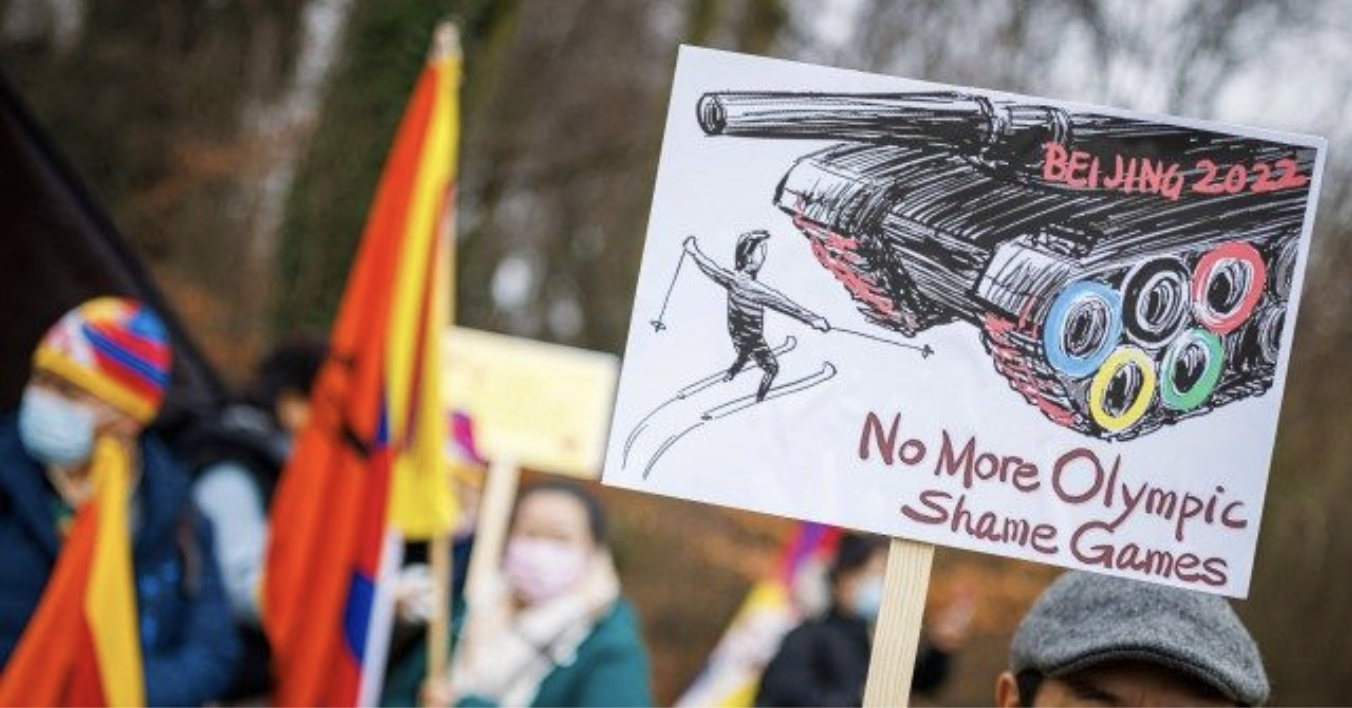The 2022 Beijing Winter Olympics recently came to an end, marking an unprecedented success; never before did the Games face scenarios as pressing as the Omicron. However, the political outrage of the diplomatic boycotting by countries such as the US, UK, Canada and India, prompted discussion on whether or not politics should be involved in sports. Opinions from 2 sides sterned and
Diplomatic boycotting refers to when countries send their athletes, but not their ministers or officials. The American White House announced its boycott based on concern surrounding China’s human rights abuse controversies. The first is the accusation of the Genocide of Uyghurs- China’s Muslim population. It is suspected that, since 2014, China has been performing brainwashing, forced labor and sterilization on minorities, including the Uyghurs. Protesters based themselves on this accusation condemning China’s hosting an Olympic “Shame” Game. The second accusation is the central government’s enactment of the National Security Law against pro-democratic protests in Hong Kong. Hong Kong, with its long history of advocating for independence, is of course reluctant to live under more laws imposed by the central government, which has furthered the anti-mainland sentiment.
The spokesperson of the Chinese Mission to the UN shared his opinion when he stated “The US just wants to politicize sports, create divisions and provoke confrontation.” This brings back the notion of whether or not compartmentalizing global politics with the Olympic spirit is a good idea. China wishes to maintain the sportsmanship intact and quotes that the US’s move was a “self-directed political farce.” Moreover, they repeatedly state that a “diplomatic boycott would not affect the success of holding the Olympics as no one cares if the officials are present or not.” Following the same lines, countries like France and Italy opposed the boycott. French President Macron stated that “we shouldn’t politicize these subjects” and that the US’s steps are “insignificant and symbolic.” As it seems, the boycotting situation symbolizes the growing tension between China and the US. The reasoning behind not politicizing the Olympics is the injustice served to the athletes, who spend years preparing and devoting their efforts, only for the Olympics to end up as an excuse for countries to engage in political hostility.
2022 isn’t the first time in which the Olympics were diplomatically boycotted. Historically, the US and the Soviet Union have traded this measure in order to prove their stance. Regarding the future Olympics, countries should partake in the global initiatives of preserving the essence of the Olympics; the vitality brought by physical exertion should not be imposed upon alternative agendas, so that worldwide people can enjoy watching the Games.
Bibliography:
Tim Elcombe Associate professor. “Get Caught up in the Olympic Spirit, but Keep Your (Political)EyesWideOpen.”TheConversation,3Feb.2022, https://theconversation.com/get-caught-up-in-the-olympic-spirit-but-keep-your-political-eyes-wide-open-174223.
“北京冬奥:外交抵制到底会有多大影响.” BBC News 中文, BBC, https://www.bbc.com/zhongwen/simp/sports-59647665.
“Beijing Winter Olympics Boycott: Why Are the Games so Controversial?” BBC News, BBC, 4 Feb. 2022, https://www.bbc.com/news/explainers-59644043.
“US Diplomats to Boycott 2022 Beijing Winter Olympics.” BBC News, BBC, 7 Dec. 2021, https://www.bbc.com/news/world-us-canada-59556613.
“Hong Kong Security Law: What Is It and Is It Worrying?” BBC News, BBC, 30 June 2020, https://www.bbc.com/news/world-asia-china-52765838.

